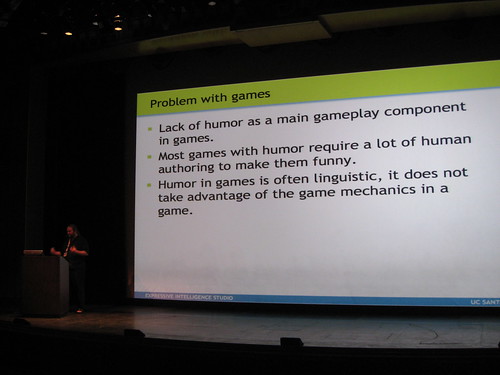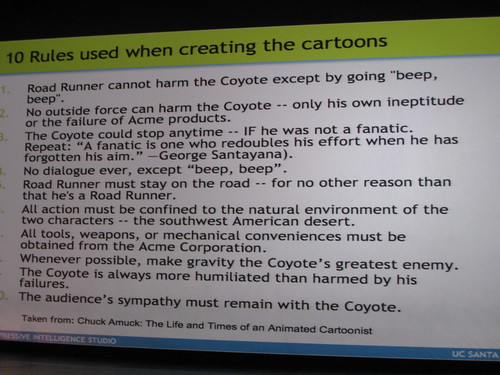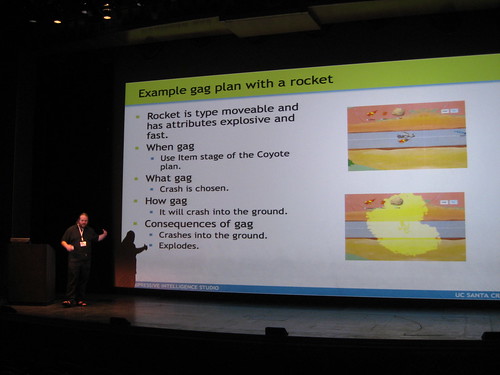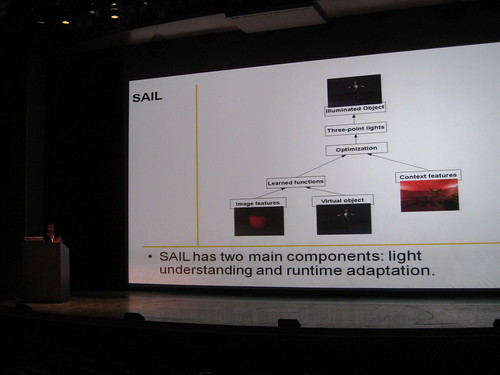
David is specifically looking at physical humor, and is studying Coyote and Road Runner Cartoons. Here, there is a set of rules to lean on:

David is building a solution (ACME :), using HTN planning) in order to generate gags.

In the discussion there was a question about time, and David explained the importance of having an extremely fine granularity in the timing.
This is the first take I have seen of generating humorous content in a computational way. As far as I know David is breaking new ground here. I so look forward to seeing what more will come from his research.
Magy Seif El-Nasr presented next in the session. Joseph Zupko has continued developing the system for automated lightning that Magy worked on for her dissertation. (“System for Interactive Automated Lighting (SAIL)”)

In games, as opposed to in movies, it is often the player who controls the camera and thus the viewing angle. The creators can’t control these angles, and not the lightning. This is where SAIL comes in, providing automatic lighting and an authoring interface for the creators. I don’t know what to say except I’m continuously and profoundly impressed by SAIL.